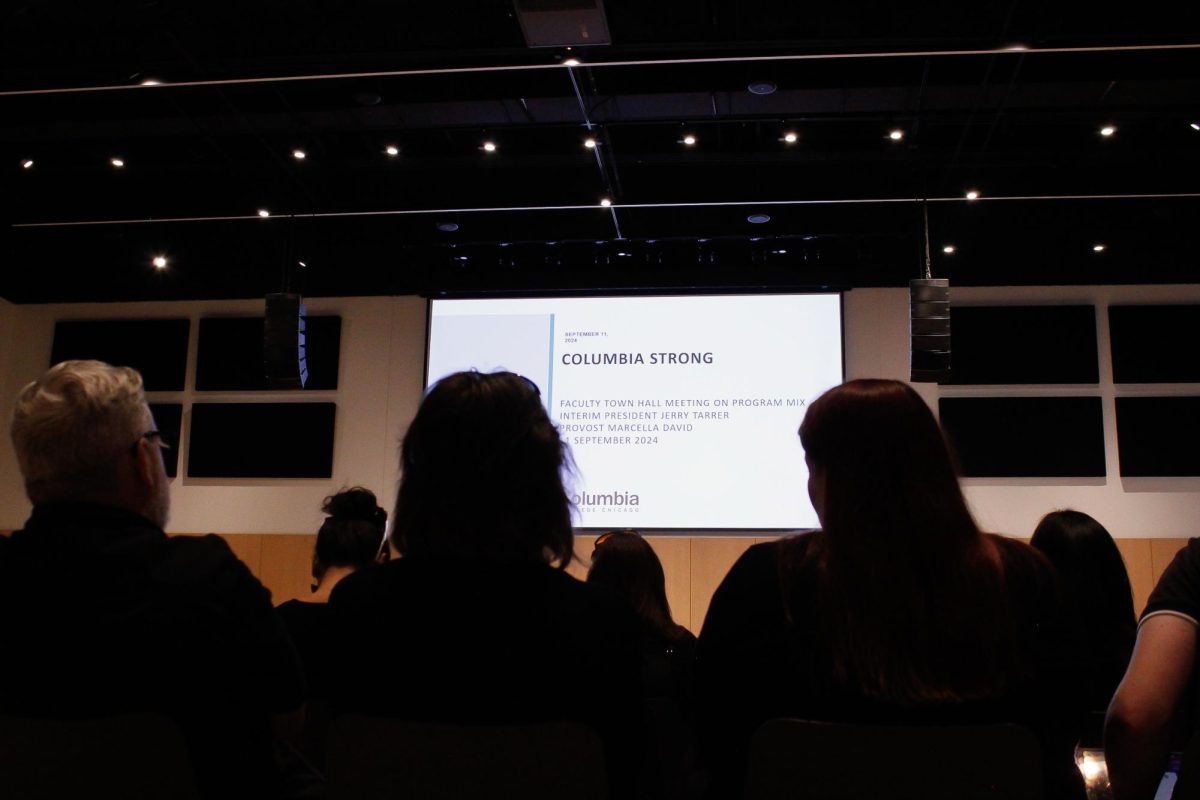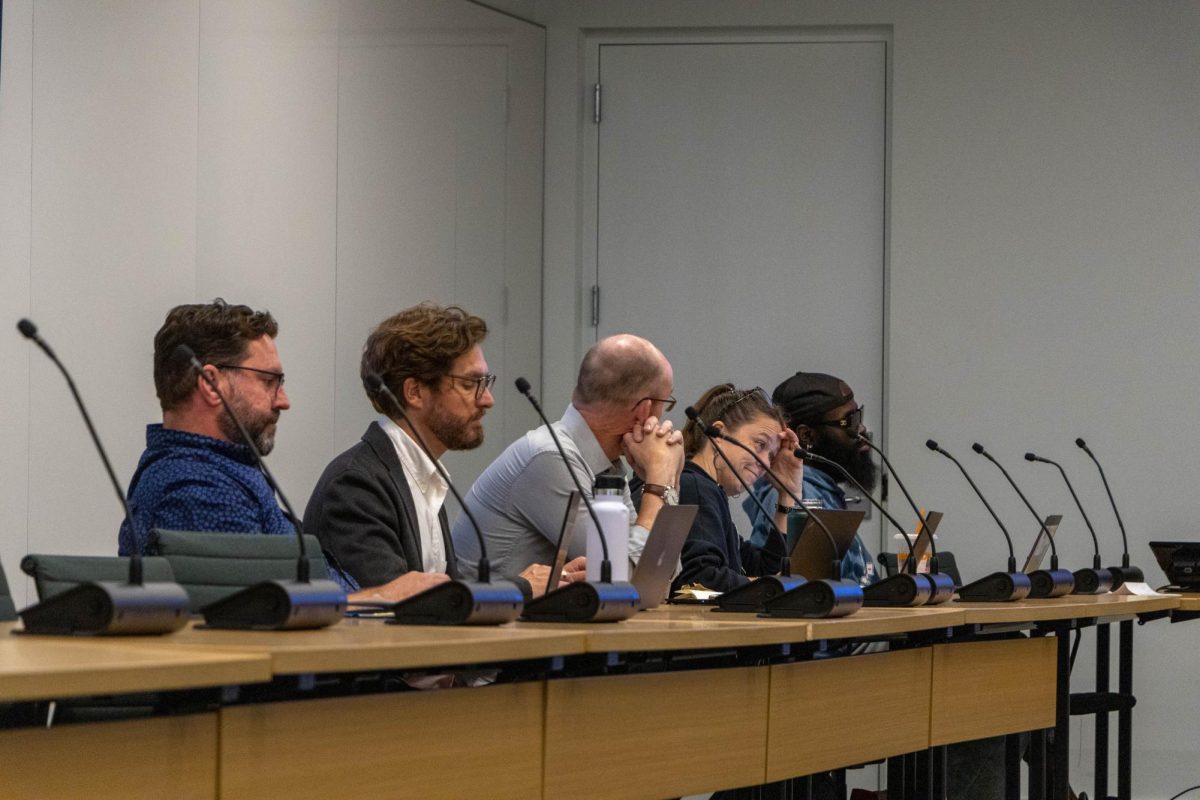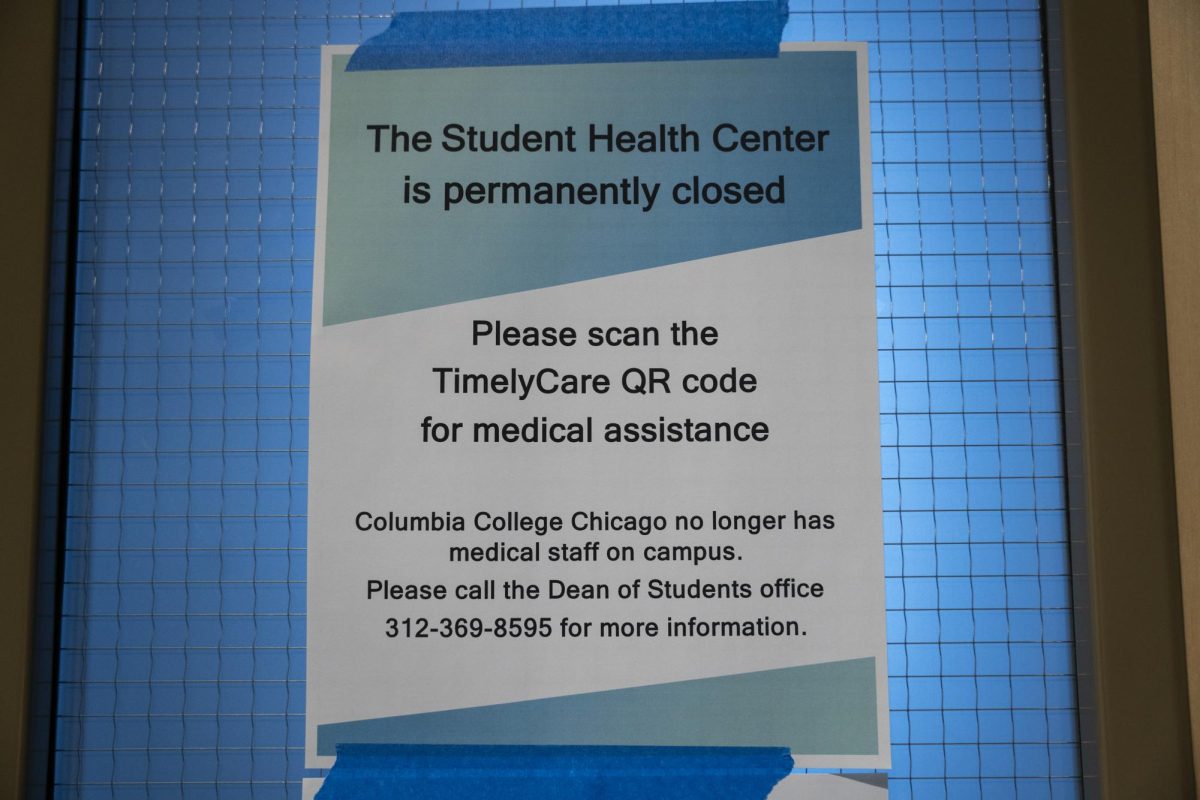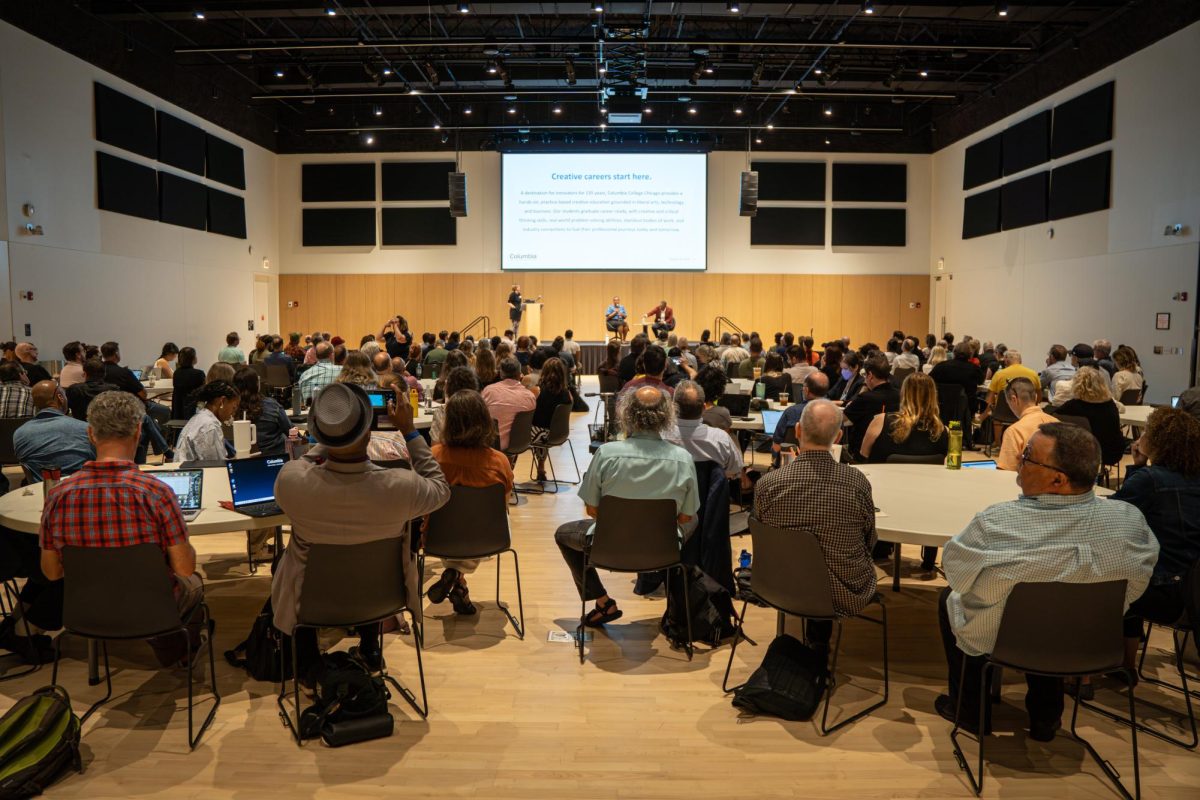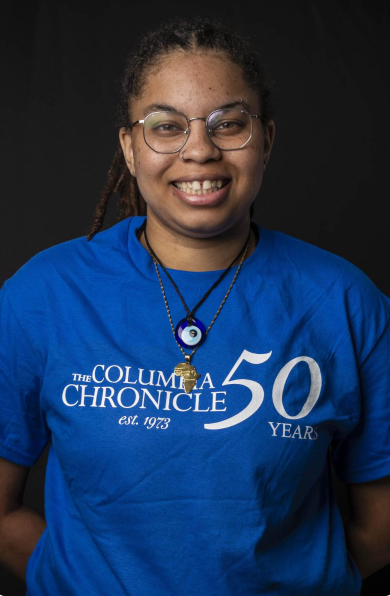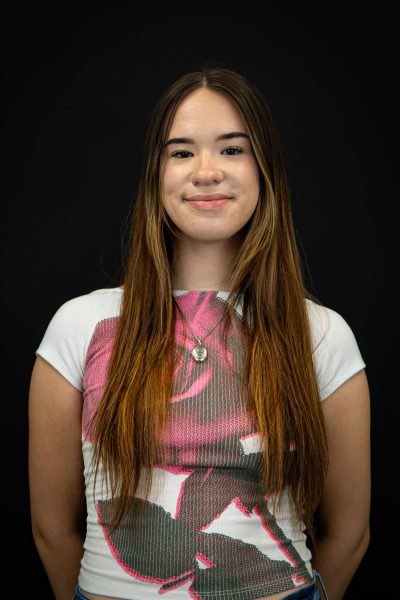The college plans to eliminate roughly 18 of its 58 majors under a massive overhaul aimed at streamlining the program offerings and carving out a more distinct place in the higher education marketplace.
Senior Vice President and Provost Marcella David shared the list of targeted programs with more than 100 faculty members on Wednesday, Sept. 11, and told them the plan was about “right sizing the program mix” as the college seeks to reduce its financial deficit.
The undergraduate programs on the list that David has recommended be cut include ASL-English interpretation, creative writing, art history, cultural studies and the new environmental and sustainability studies majors.
The decision is driven by costs. The ASL-English interpretation, dance and art history programs lose $10,001 to $20,001 annually per student because the instructional costs exceed what students pay in tuition.
Students whose majors are on the list will not have to leave or will still be able to graduate with their degree. David told faculty that the students in the targeted programs will be supported through 2028. In the past when Columbia sunset majors, it stopped accepting new students but continued to support existing students, as the Chronicle previously reported.
Faculty in the eight schools will meet over the next months to work on curriculum, which may result in some programs becoming minors or merging with other degrees. The Faculty Senate will review the plans in early December, and the final recommendations will go to the Board of Trustees on Feb. 6 of next year under the timeline shared with faculty.
David told the Chronicle she’s seen Columbia survive hard times before and although a lot of what she presented was the cost of programs, “I’m eager in the next few months for the conversation to shift from the notion of costs to ‘what can we build?’”
As faculty filed into the first in a series of town halls that will be held this fall, many talked about sitting toward the back in case they became emotional. Even though 11 full-time faculty took buyouts and six retired before the Fall 2024 semester started, full-time faculty layoffs are still possible, David told faculty at the meeting.
Although the college managed to retain more sophomores going into the fall semester, overall enrollment continues to plummet. The population stands at 5,618 according to an email sent by Tarrer earlier this week, down 1,000 from last fall.
David recommended that the music tech and dance bachelor’s degrees be put on a “watch list” to be revised in order to bring down costs. She agreed with the consultant’s recommendation to close the environmental and sustainability studies degree and also to close out the cultural studies, fine arts and photography MFA degrees and the theater graduate programs, which are already suspended. She recommended that the media for social impact graduate degree also be reviewed for possible closure.
The acoustics, television writing and business and documentary majors have already begun the process of being phased out, with the programs being closed for good in 2027, according to an email from Interim President and CEO Jerry Tarrer sent shortly after the meeting concluded.
Tarrer had planned to attend the first town hall but was sick, David told faculty at the meeting.
The consulting firm used enrollment trends, market share, financial contributions margins and expense reductions when assessing which programs may be merged or cut.
David refined the list based on her own review. She said that her criteria included how a program “fit into the Columbia ecosystem.” She looked for interdependencies, signature programs, impact on mission and vision, including DEI factors, likelihood of reimagining to reduce costs and how a program supported student success goals.
Columbia currently has 58 undergraduate majors and 11 concentrations across those majors. In a series of slides presented to faculty, David outlined some of the considerations behind her recommendations.
She noted that 63% of Columbia’s programs have fewer than 50 students enrolled, with 29% of those having fewer than 10 students.
David also recommended that the following programs could be combined:
- marketing, advertising, public relations and social media,
- game art, animation, game design and programming,
- graphic design and user experience/interaction design,
- journalism and photojournalism,
- theater design and production,
- theater and dance performance and movement,
- arts/entertainment management and music business and
- music composition, recording, performance and business.
Although the faculty said that David was clear that these program revisions are solely recommendations at this point and nothing is decided, many were in tears as the meeting ended.
Faculty were told at the meeting that there are no programs at Columbia that generate revenue; all programs cost more to deliver than they collect in tuition.
Melissa Potter, professor at the School of Visual Arts, said faculty expected the information weeks ago. “As stewards of the curriculum, the faculty have a right to this report,” she told the Chronicle before the meeting began. “I want it full and in its entirety.”
Susan Kerns, associate provost of faculty research development, said that the meeting was a “sobering but important conversation.”
“I think Marcella did a really good job being transparent, and I think that is a relief, even if not super great news,” said Kerns, associate professor in the School of Film and Television.
However, Kerns said that one thing that faculty does have is each other.
“I have been at schools where faculty do not work collaboratively the way that we do, and this institution is incredibly invested in supporting each other, collaborating, finding new ideas and finding new solutions,” Kerns said. “I think that is something we have on our side that a lot of schools just don’t
Michael Caplan, the new president of the college’s AAUP chapter, said he was “cautiously hopeful” after the meeting.
“I’m still unclear on the financial plan, because if all the programs are losing money, then when you get rid of some of the programs, you’re still losing money, just less money and I don’t see a clear plan for getting to a balance,” he said.
David and Tarrer will host another meeting on Nov. 5, a non-instructional day for the election.
“We have an institutional challenge and the way that we’re going to succeed in meeting that challenge is holistically and altogether,” said Senior Associate Provost Nathan Bakkum
“There’s an incredible amount of expertise among our faculty, and we have an opportunity to articulate a future direction that is sustainable, that is exciting, that lives up to our promise to our students, of providing an opportunity and a pathway towards creative careers.” Bakkum said.
Ted Hardin, Faculty Senate secretary and associate professor in the School of Film and Television, said that there was nothing surprising about the information shared at the meetings.
Hardin, who has been working on the steering committee alongside Faculty Senate President Rojhat Avsar, said “It’s good to have this out in front of other minds, so that we’re not the only ones with that in our head.”
“It’s a challenge that schools like ours, but a lot of institutions of higher learning are facing around their country,” Hardin said. “So, that’s important to know so that perhaps solutions from other places can also emerge as we move forward and continue to make our school as robust and creative as possible.”
Copy edited by Manuel Nocera
Resumen en Español:
El miércoles, 11 de septiembre, Marcella David, la vicepresidente senior y preboste, compartió con la facultad una lista de programas destinados a ser eliminados por la universidad para ayudar a cerrar un déficit de $17 millones. Los 18 programas en la lista de 58 total incluye Lenguaje por Señas Americana – Interpretación Inglés, Escritura Creativa, Estudios Ambientales y Sostenibilidad. Los estudiantes de estos programas no tendrían que salirse a otros programas, y pueden terminar con su título hasta 2028. Los administradores de la universidad tendrán otras reuniones para discutir y planificar más del asunto el 5 de noviembre.
Resumen en Español por Sofía Oyarzún
Copia editada por Manuel Nocera


